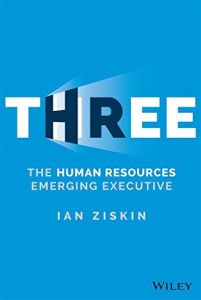
Three
The Human Resources Emerging Executive
Recommendation
HR and coaching expert Ian Ziskin covers three crucial tasks that human resources professionals face: knowing yourself; knowing the latest advances and trends in HR; and knowing how to listen to and learn from others. Today’s strongest HR leaders develop “multidisciplinary” knowledge about the business that their department serves. They cultivate relationships with other business leaders, board members and customers. They challenge senior executives and embrace data and analytics. Though Ziskin breaks little new ground, his lively manual is thorough and useful. getAbstract believes that most business professionals and leaders will gain from Ziskin’s guidance, and emerging or experienced HR professionals will benefit the most.
Summary
About the Author
HR consultant and coach Ian Ziskin also wrote WillBe: 13 Reasons WillBe’s are Luckier than WannaBe’s.
Learners who read this summary also read
Related Skills
































Comment on this summary